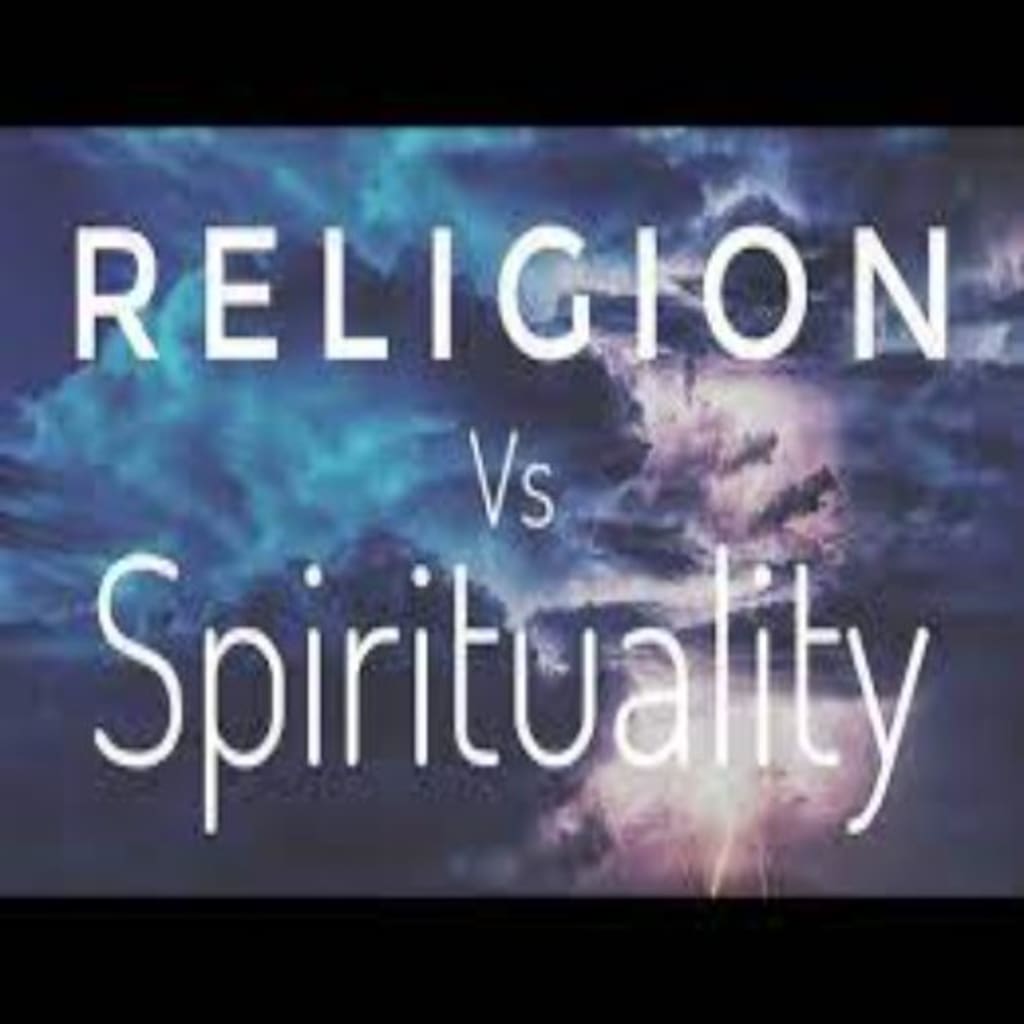Spirituality Vs Religion
These fields of spirituality and religion are often discussed together, but they represent two different approaches to faith, belief

These fields of spirituality and religion are often discussed together, but they represent two different approaches to faith, belief and the search for a deeper connection with the divine or transcendent. This article discusses the differences between spirituality and religion and provides an overview of each approach and their role in the lives of individuals and communities.
Definition of Religion:
Religion, in its most common form, refers to organized systems of beliefs, practices, and rituals centered around a particular belief, deity, or philosophy. Religions contain established institutions, sacred texts, teachings, and often prescriptive rules and rituals that guide the beliefs and behavior of their followers. These institutions can take the form of churches, temples, mosques, or other places of worship, and are often led by priests or religious leaders who confirm and interpret the faith and teachings.
Definition of Spirituality:
Unlike the more organized and institutional nature of religion, spirituality is a very personal, subjective and often eclectic concept. It involves the individual and their connection to something outside of themselves - often described as a transcendent or divine presence. Unlike religion, spirituality is not limited to any particular religious tradition or institution. It offers people the flexibility to define their own beliefs and practices through deeply personal and introspection. Key differences:
Structure vs. personal inquiry:
religion is structured around established doctrines, rituals, and practices shared by a community of believers. Spirituality is characterized by individual exploration and personal connection with transcendence, often without any formal structure.
Institutions vs. individual paths:
religions have formal institutions and leadership roles such as priests, priests or imams. Spirituality encourages personal exploration and connection without relying on established religious institutions.
Dogma vs. Flexibility:
Religions often uphold certain dogmas or beliefs that followers are expected to adhere to. Spirituality allows for greater flexibility, allowing people to explore their beliefs and practices without the constraints of religious doctrine.
Community vs. Solitude:
Religion often emphasizes a sense of community and congregation, with regular worship, ceremonies and fellowship. Spirituality can be practiced individually, preferring solitude and personal reflection.
Exclusive vs Inclusive:
Some religious traditions may claim that they are the only true path to the divine, leading to exclusivity. Spirituality tends to be more inclusive, recognizing that there are many ways to connect with the Transcendent and respecting different beliefs. Sacred Texts Versus Personal Insights: Religions have sacred texts such as the Bible, the Koran or the Torah, which form the basis of their writings. In spirituality, people can draw from a variety of sources, including religious texts, but they also use personal insights, experiences, and the wisdom of different traditions.
Morality and Ethics:
Religions often provide a clear moral and ethical framework based on their teachings. In spirituality, people can develop their own moral and ethical beliefs based on personal experiences and reflections.
Overlapping and complementary aspects:
In fact, spirituality and religion are often complementary, and spirituality functions as a deeply personal and introspective dimension that enhances one's experience in a religious community. It offers individuals a unique and intimate connection with the divine, allowing for personal interpretation and spiritual growth alongside religious teachings and rituals. Conclusion: Individual (or community) choice
the difference between spirituality and religion is the degree of structure, personal exploration and individual interpretation. Both approaches have a place in the realm of faith and belief. The choice between them is very personal and depends on the beliefs, experiences and needs of the person. Whether one finds solace in the structured practices of religion, personal spiritual exploration, or a combination of both, the journey to a deeper connection with transcendence remains a deeply individual and meaningful endeavor. Understanding differences can foster greater respect and dialogue between individuals and communities with different beliefs and practices.
About the Creator
Sarang Panhwar
Welcomes to my Account Hi i am here for you to share some hidden information's about the world that i gather for you i hope you will enjoy the reading and get more information's






Comments
There are no comments for this story
Be the first to respond and start the conversation.